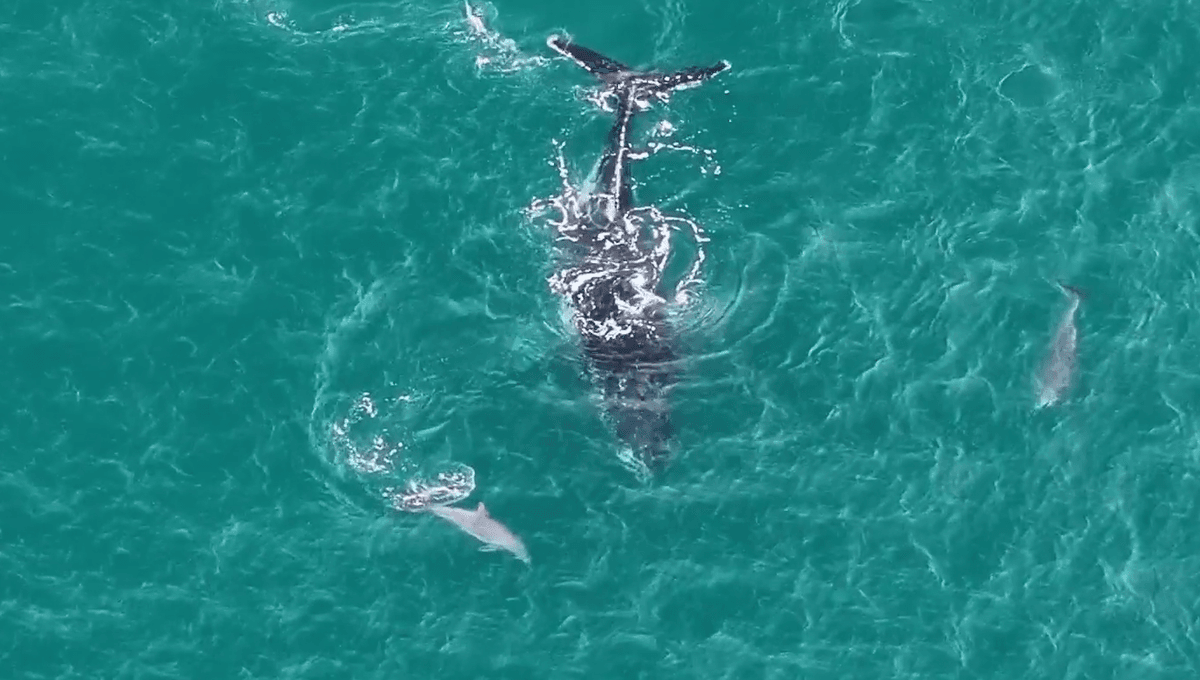
Animals can work cooperatively in groups all the time to impress females, catch prey, or even groom each other. Species working with another species outside of their own is a lot more unusual, but this appeared to be what a local conservationist group in Western Australia recorded recently.
Australia’s Dolphin Discovery Centre in Bunbury recorded a lost humpback whale that had ended up in Koombana Bay in mid-June. The team at the centre decided to send up a drone to monitor the whale, and also sent a boat to get a closer look.
“After observing the animal from the air and vessel, it appeared to be in good health and was not entangled, which was quite a relief to see,” the center wrote on Facebook.
However, the animal was in the shallower part of the bay. As the boat got closer, a group of dolphins appeared around the whale, eventually seeming to help lead it back out into deeper water to return to its migration route.
“Sometimes it happens that an animal gets spooked by a predator, is poorly or injured, or might have a fishing gear entanglement,” the center said. “These animals then often seek shelter in calmer and more shallow parts to rest up.”
Humpback whales migrate along the coast of Australia between May and November when they move from the cold waters of Antarctica to the breeding areas around Australia’s Gold Coast. This journey can take three months as the whales cover around 5,000 kilometers (3,000 miles). One individual was even recorded swimming a record-breaking 13,000 kilometers (8,000 miles). Once these whales were hunted to near extinction, but now number around 50,000 individuals.
Source Link: Watch Friendly Dolphins Help Lead A Lost Humpback Whale Into Deeper Waters